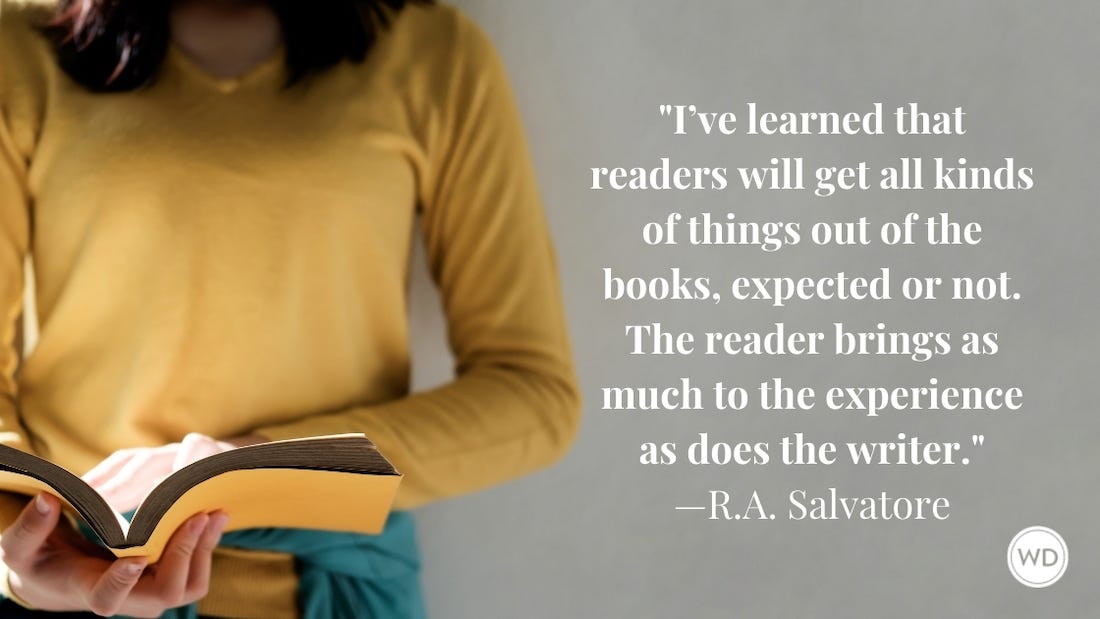Science-Fiction Author John Scalzi Explains How Not to Be Boring
JOHN SCALZI is the author of several science fiction novels, including the bestselling Old Man’s War series, comprising Old Man’s War, The Ghost Brigades, and The Last Colony. He is…
JOHN SCALZI is the author of several science fiction novels, including the bestselling Old Man’s War series, comprising Old Man’s War, The Ghost Brigades, and The Last Colony. He is a winner of the John W. Campbell Award for Best New Writer, and he won the Hugo Award for Your Hate Mail Will Be Graded, a collection of essays from his wildly popular blog The Whatever (whatever.scalzi.com).
In a spotlight interview featured in the September 2011 issue of Writer’s Digest, Scalzi shared his insights on science fiction writing, the hardest part of the writing process, his writing influences and much more. Here, the discussion continues in this online-exclusive bonus Q&A. Enjoy.
Your lastest science fiction project, Fuzzy Nation is a reboot of the 1962 H. Beam Piper novel Little Fuzzy. Was your process for writing it different than your other projects?
Not particularly. I was using Little Fuzzy as a general roadmap, but then as far as the plot went I went off-road enough that I still had to do all the things I usually do regard plotting and figuring out where the story was going next. The one major difference was being mindful to strike the balance between what people expect from a familiar and classic story (Little Fuzzy was nominated for a Hugo, after all, science fiction's top award), and also putting enough in that was new and unexpected that people would have a reading experience that wasn't a retread. I think I stuck that balance, but then, I would think that, wouldn't I.
Would you mind talking about your approach to writing?
It basically boils down to "don't be boring." As a reader I have a very short attention span and a low tolerance for boredom, and I find that comes in handy with my writing. If I get bored writing something, I pity the people who will then try to read it. So I keep the "am I bored with this?" question near the top of my mind when I write. If I am bored, out it goes. This doesn't mean everything has to be slap, bang, boom -- it's possible to write interesting quiet moments (and very boring action scenes). It does mean, however, that anything you do has to pull its weight in the story and keep the reader turning those pages.
What role does humor play in your writing?
It plays a pretty important role, but it's a role that has to be integrated with everything else you're doing. It's like life -- there are funny parts and then there are the parts that aren't so funny, and you move between the two all the time. A novel is not like life (there are hopefully fewer boring parts to a novel), but it's a model of it, and so putting humor into the mix as part of the events that fuel the plot is a good way to make the reader feel the story has a natural flow. Of course, sometimes it's also fun just to write something, but even when I write something that's in a comic mode, I try to get a mix of other emotional moments in there -- if you go for funny every single second, you're going to burn out your readers.
You seem like you have a lot of irons in the fire with your blog and your position as president of the Science Fiction and Fantasy Writers of America. How do you balance your responsibilities with your writing schedule?
When I'm writing a novel or doing other serious writing work, I do it on a schedule that dictates writing either 2,000 words a day or writing until noon. After I hit whichever mark comes first, then I can give my attention to everything else I have to do. This sort of prioritization is important to me because when it comes down it, the book writing is what everything else is founded on; it pays my mortgage and my bills and the rest follows from there. When I became SFWA President, one of the things I wanted to do is make the point that one could do the job and still have time for writing. I've been able to do that -- although to be clear, much of that comes from having a really excellent board of directors and volunteers in the organization sharing the load.
In Old Man’s War you give a nod to Heinlein as an influence. What other writers inspire you and why?
Many of the writers who have inspired me most are outside the genre: Humorists like Robert Benchley and James Thurber, screenwriters like Ben Hecht and William Goldman, and journalists/columnists like H.L. Mencken, Mike Royko and Molly Ivins. They inspire me because they were good with words (obviously) and they were also in command of their particular form of writing. There's lots to look at, both to enjoy and to study. I also believe that the best way to grow a genre -- in this case science fiction -- is to bring new elements into it. This is why I always recommend to aspiring science fiction and fantasy writers that they read outside the genre as much as they read inside of it.
A lot of your success seems to be based partly on your approach to getting your work out there. You’ve serialized books on websites and offered books as free downloads. What advice do you have for writers trying to get their work noticed?
Well, I think we want to be careful that we don't overgeneralize. I have serialized work and offered free downloads, but much of the time that wasn't part of any intentional marketing plan; I'm just lazy and sometimes decide that putting stuff up was easier than submitting it. I also was lucky to be in the right place at the right time in terms of doing this stuff online. Someone trying to do the same things I did (and do) should not expect the same results; the initial conditions will be different for them.
Ultimately the first, best step in getting your work noticed is to write good work. If people don't engage in your writing, no amount of serialization or free downloads is going to matter. You have to write something worth reading, and often it takes time to get at that level. By the time I serialized Old Man's War on my blog in 2002, which lead to its publication, I had a decade of professional writing life behind me, and had spent several years writing daily on my Web site, which grew an audience there. So like many other "overnight successes," there were a fair number of year preparing for when good luck found me.
What is your favorite thing trending in science fiction and fantasy right now?
I don't really focus on marketing or subgenre trends; I think that's a fine way to work one's self into a frenzy about things that ultimately you can't predict or track. I will say that my favorite thing about science fiction and fantasy right now is that it has so many genuinely good writers in it. I am biased, but I can say that the best writers in our genre can hold their own against any writers in any genre -- and we have more very good writers in the genre per capita than at any other time in the genre's history. I read a lot of my contemporaries' work and am just so damn impressed. It's a great time to be reading the genre.
What do you think is the #1 key to a successful SF/fantasy novel?
There isn't one, nor do I think it's helpful to think of it in those terms. Science fiction and fantasy are hugely diverse fields at the moment in terms of what's successful in the market: it ranges from laser-blasting military fiction to deeply abstruse books based on alien linguistics to feminist steampunk alternate histories. There's no one way to the top of the genre; there are lots of ways to scale that peak. This is one of the things that makes the genre unique and exciting to be in at the moment.
What advice would you give writers looking to break into those genres?
I would ask them: What do you want to read in the genre? If they know, then that what I would tell them to write -- because writing what you love is one of the best ways to write something someone else will love. If they can't think of anything they'd like to read in the genre, I would suggest to them they try writing something else instead.
Learn how to create strong characters, craft believable dialogue & get the attention of agents with:
The Writer’s Little Helper
Become a WD VIP and Save 10%:
Get a 1-year pass to WritersMarket.com, a 1-year subscription to Writer's Digest magazine and 10% off all WritersDigestShop.com orders! Click here to join.
Also check out these items from the Writer's Digest's collection:
Writer's Digest Elements Of Writing Fiction: Beginnings, Middles & Ends
Writer's Digest Elements Of Writing Fiction: Scene & Structure
Writer's Digest Elements Of Writing Fiction: Description
Writer's Digest Elements Of Writing Fiction: Characters & Viewpoint
Writer's Digest No More Rejections
Writer's Digest Weekly Planner
Writer's Digest How to Land a Literary Agent (On-Demand Webinar)
Writer's Digest Magazine One-Year Subscription
Writer's Digest 10 Years of Writer's Digest on CD: 2000-2009
Brian A. Klems is the former Senior Online Editor of Writer’s Digest, and author of Oh Boy, You’re Having a Girl (Adams Media/Simon & Schuster). Follow him on Twitter @BrianKlems.








